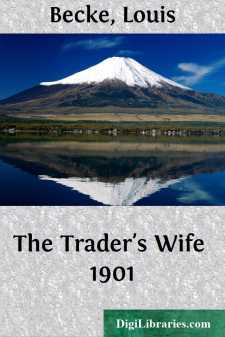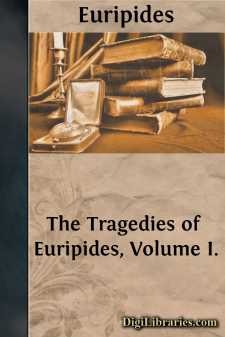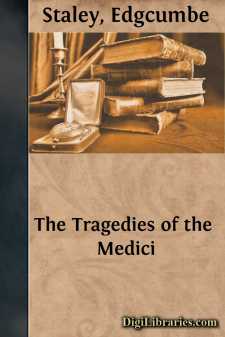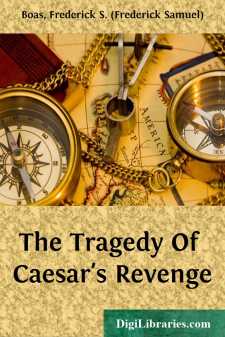Categories
- Antiques & Collectibles 13
- Architecture 36
- Art 48
- Bibles 22
- Biography & Autobiography 813
- Body, Mind & Spirit 142
- Business & Economics 28
- Children's Books 15
- Children's Fiction 12
- Computers 4
- Cooking 94
- Crafts & Hobbies 4
- Drama 346
- Education 46
- Family & Relationships 57
- Fiction 11828
- Games 19
- Gardening 17
- Health & Fitness 34
- History 1377
- House & Home 1
- Humor 147
- Juvenile Fiction 1873
- Juvenile Nonfiction 202
- Language Arts & Disciplines 88
- Law 16
- Literary Collections 686
- Literary Criticism 179
- Mathematics 13
- Medical 41
- Music 40
- Nature 179
- Non-Classifiable 1768
- Performing Arts 7
- Periodicals 1453
- Philosophy 64
- Photography 2
- Poetry 896
- Political Science 203
- Psychology 42
- Reference 154
- Religion 513
- Science 126
- Self-Help 84
- Social Science 81
- Sports & Recreation 34
- Study Aids 3
- Technology & Engineering 59
- Transportation 23
- Travel 463
- True Crime 29
Sort by:
by:
Saki
THE TOYS OF PEACE “Harvey,” said Eleanor Bope, handing her brother a cutting from a London morning paper of the 19th of March, “just read this about children’s toys, please; it exactly carries out some of our ideas about influence and upbringing.” “In the view of the National Peace Council,” ran the extract, “there are grave objections to presenting our boys with regiments of fighting...
more...
CHAPTER I He was thirty-three, agreeable to look at, equipped with as much culture and intelligence as is tolerated east of Fifth Avenue and west of Madison. He had a couple of elaborate rooms at the Lenox Club, a larger income than seemed to be good for him, and no profession. It follows that he was a pessimist before breakfast. Besides, it's a bad thing for a man at thirty-three to come to the...
more...
by:
Alice Henry
THE TRADE UNION WOMAN I EARLY TRADE UNIONS AMONG WOMEN 1825-1840 The earliest factory employment to engage large numbers of women was the cotton industry of New England, and the mill hands of that day seem to have been entirely native-born Americans. The first power loom was set up in Waltham, Massachusetts, in 1814, and the name of the young woman weaver who operated it was Deborah Skinner. In 1817...
more...
by:
Louis Becke
CHAPTER I Brabant's wife was sitting on the shady verandah of her house on the hills overlooking Levuka harbour, and watching a large fore and aft schooner being towed in by two boats, for the wind had died away early in the morning and left the smooth sea to swelter and steam under a sky of brass. The schooner was named the Maritana, and was owned and commanded by Mrs. Brabant's husband,...
more...
by:
George MacDonald
PREFACE By this edition of HAMLET I hope to help the student of Shakspere to understand the play—and first of all Hamlet himself, whose spiritual and moral nature are the real material of the tragedy, to which every other interest of the play is subservient. But while mainly attempting, from the words and behaviour Shakspere has given him, to explain the man, I have cast what light I could upon...
more...
by:
Euripides
INTRODUCTION. Euripides, son of Mnesarchus, was born in the island of Salamis, on the day of the celebrated victory (B.C. 480). His mother, Clito, had been sent thither in company with the other Athenian women, when Attica was given up, and the ships became at once the refuge of the male population, and the national defense. Mr. Donaldson well remarks, that the patronymic form of his name, derived from...
more...
by:
Edgcumbe Staley
CHAPTER I LORENZO—"Il Magnifico." GIULIANO—"Il Pensieroso." "Signori!" "Signori!" Such was the stirring cry which resounded through the lofty Council Chamber of the famous Palazzo Vecchio that dull December day in the year 1469. Never had such a title been accorded to any one in Florence, where every man was as good as, if not better than, his neighbour. Foreign...
more...
Plays on the subject of Caius Julius are so numerous that some difficulty arises in properly distinguishing the titles. In the case of the piece here reprinted the first title, which is also the head title, suggests a play of Chapman’s, while the running title is the traditional property of William Shakespeare. It seems, therefore, best that it should become known by the name which appears second on...
more...
by:
Mark Twain
CHAPTER 1 вÐâ Pudd'nhead Wins His Name Tell the truth or trumpвÐâbut get the trick.вÐâPudd'nheadWilson's Calendar The scene of this chronicle is the town of Dawson's Landing, on the Missouri side of the Mississippi, half a day's journey, per steamboat, below St. Louis. In 1830 it was a snug collection of modest one- and two-story frame...
more...
by:
Walter Runciman
CHAPTER I THE ABODE OF DARKNESS In Clause 2 of his last will, dated Longwood, April 15, 1821, the Emperor Napoleon states: "It is my wish that my ashes may repose on the banks of the Seine, in the midst of the French people whom I have loved so well." At London, September 21, 1821, Count Bertrand and Count Montholon addressed the following letter to the King of England:— "SIRE,—We now...
more...











